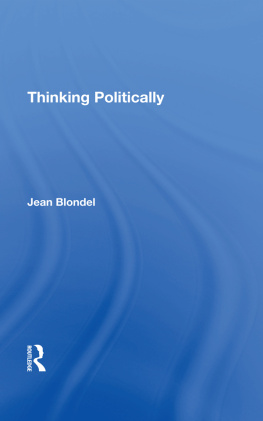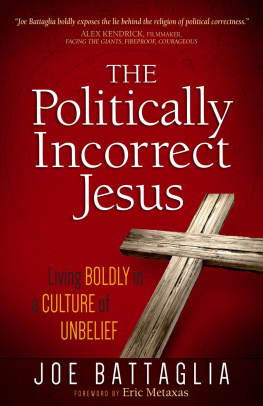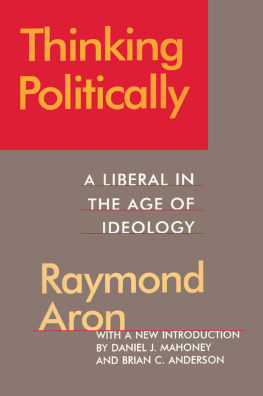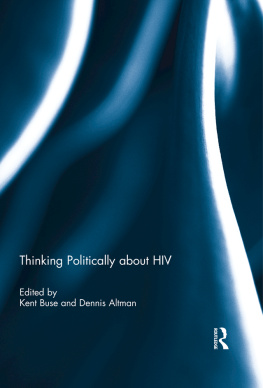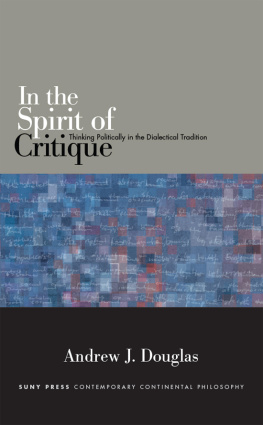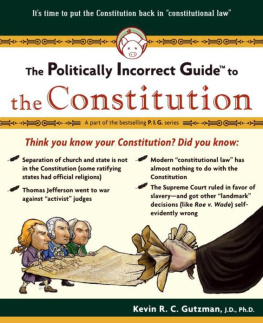Thinking Politically
by the same author
VOTERS, PARTIES AND LEADERS
PUBLIC ADMINISTRATION IN FRANCE
(in collaboration with F. Ridley)
CONSTITUENCY POLITICS
(in collaboration with F. Bealey and P. McCann)
THE GOVERNMENT OF FRANCE
A READER IN COMPARATIVE GOVERNMENT
AN INTRODUCTION TO COMPARATIVE GOVERNMENT
WORKBOOK FOR COMPARATIVE GOVERNMENT
(in collaboration with V. Herman)
COMPARING POLITICAL SYSTEMS
COMPARATIVE LEGISLATURES
CONTEMPORARY FRANCE
First published 1976 by Westview Press
Published 2019 by Routledge
52 Vanderbilt Avenue, New York, NY 10017
2 Park Square, Milton Park, Abingdon, Oxon OX14 4RN
Routledge is an imprint of the Taylor & Francis Group, an informa business
Copyright 1976 in London, England by Jean Blondel
All rights reserved. No part of this book may be reprinted or reproduced or utilised in any form or by any electronic, mechanical, or other means, now known or hereafter invented, including photocopying and recording, or in any information storage or retrieval system, without permission in writing from the publishers.
Notice:
Product or corporate names may be trademarks or registered trademarks, and are used only for identification and explanation without intent to infringe.
Library of Congress Cataloging in Publication Data
Blondel, Jean, 1929
Thinking politically.
Bibliography: p.
1. Political science.I. Title.
JA66.B53 1975 320 75-38746
ISBN 13: 978-0-367-27394-1 (hbk)
Every subject has its amateurs and its professionals, but perhaps in politics the gaps and misunderstandings between professionals and amateurs are larger than in any other field of human inquiry. Politicians and interested observers criticize political scientists for creating too much order out of what is in reality a mixture of habits, customs and uneasy compromises; they regard students of politics as unnecessary or dangerous, harmless or wasteful. Of course, politicians, observers and the man in the street are inconsistent: they ask professionals to draft constitutions, to account for election results, to explain military coups; while governments and political groups are more frequently too frequently for some radicals seeking the advice of professional political scientists. But the gap is still unnecessarily wide.
I hope that this little book will contribute to a better understanding of the aims of political science, its methods, problems and successes, as well as elucidating the internal contradictions and conflicts to which it is liable. I also hope that I may correct the illusion that political scientists are mere dreamers, by showing that one of their efforts is to comprehend the bizarre complexity of reality. Indeed, active politicians often have a more narrow outlook than they realize: their reality is limited to their immediate context, whereas the political scientist examines broader contexts.
Those who think politically are expected particularly in times of crisis to provide formulae for a better future; they have to guide and explain, for better and for worse. I shall try to give an unbiased account of this guidance and these explanations; hopefully the reader will then be able to make a more informed judgement of the varied panorama of interests, aims and subjects that political scientists choose. The subject is so varied, its substance so complex, that what is presented here should be seen and hopefully will be seen as only a preliminary introduction to the psychology and approaches of those who think politically. But if this book does give some insight into the profession of political science, much of the credit must belong to Robert Clower, of the Department of Economics of the University of California at Los Angeles (previously of Northwestern University and of the University of Essex) who urged me to try to give an account of the profession which has been mine all of my adult life: he has stimulated my thoughts and at times given me the courage to rise to this challenge. To him I am most indebted and grateful; though it is of course to me, and me alone, that mistakes, errors, undue silences or distorted judgments must be attributed.
J. BLONDEL
Mourillon, Toulon, France
July 1974
Chapter 1
Introduction
This book is about thinking politically. It might be objected that politics is commonly understood to be a somewhat shabby activity. How often has one heard people say these men are simply playing politics, when they refer to individuals who ought to be idealistic instead of being concerned with their own careers, the dislodgement of others from positions, or some advantages for a little clique? For those who view politics in this way, thinking politically can only be at best an attempt to discover rules about an activity which only exists because of the imperfections of men, and especially of rulers.
Politics does sometimes have a bad name. Yet even those who label politics as dirty are often inconsistent in their attitudes. Few uniformly describe as dirty all the political activities that they witness around them. Politicians are normally denigrated, but statesmen are viewed with respect. Those who would generalize about the character of politicians from corruption in some large cities admire a Roosevelt, a Churchill, a Gandhi, a Lenin or a Mao tse Tung. Few of those who wholly detest politics are likely to read this book, but some might at least glance at its first page: so I ask you, would you definitely swear that politics is totally unredeemed? Have you never uttered a word of praise or felt any admiration for a politician? Do you believe that political activity can never achieve any worthwhile objective? Perhaps these attacks against politicians result from limited observations, not from a general appraisal.
But another group of critics possibly more sophisticated and knowledgeable argue that political activity does not lead to thinking, in the strong sense of the word, since politics cannot really be analysed systematically. Politics covers the behaviour of millions of people in countless situations; chess is difficult enough, yet it relates to a limited number of figures which can only execute the moves that they are asked to do. In politics, men are driven, led or followed in such different types of conditions that the idea of thinking about them, in a constructive, coherent and scientific manner seems to many to be impossible. Politicians seem to have a flair for what will succeed. They often make mistakes, but they have their ear to the ground: they sense the problems sufficiently accurately to be able, sometimes, to correct their errors and succeed after all. Thinking politically seems to relate to something more conscious and more systematic. Can it really be done?
While moral objections to the whole of politics can be fairly easily dismissed, objections to the idea of politics as the subject of coherent studies need to be considered carefully. Indeed, periodically, doubts have been expressed among intellectuals as well as among laymen about the very possibility of political science. Admittedly, the subject has attracted thinkers, including many of the best thinkers that the world, at least the Western World, has known in the last 2,500 years. From Plato and Aristotle to the twentieth century, nearly every generation has produced writers who have tried their luck at studying politics, at giving advice to politicians, at proposing blueprints for a better society. In the last seventy years, and in particular since the Second World War, the academic discipline of politics has become established as a major subject of teaching and research, in universities, colleges and many other centres. This has happened in Western Europe, in Eastern Europe and parts of the Third World; in the United States the profession of political science has even achieved real recognition. Though the discipline does not absorb resources on the scale of the natural sciences, and though it may not attract as much attention as economics and sociology in administrative and journalistic circles, it has gained in strength and grown in stature and the time may soon come when its acceptance will be universal or near-universal: economics, after all, was barely recognized by governments before Keynes; it was rarely taken seriously before the First World War.

